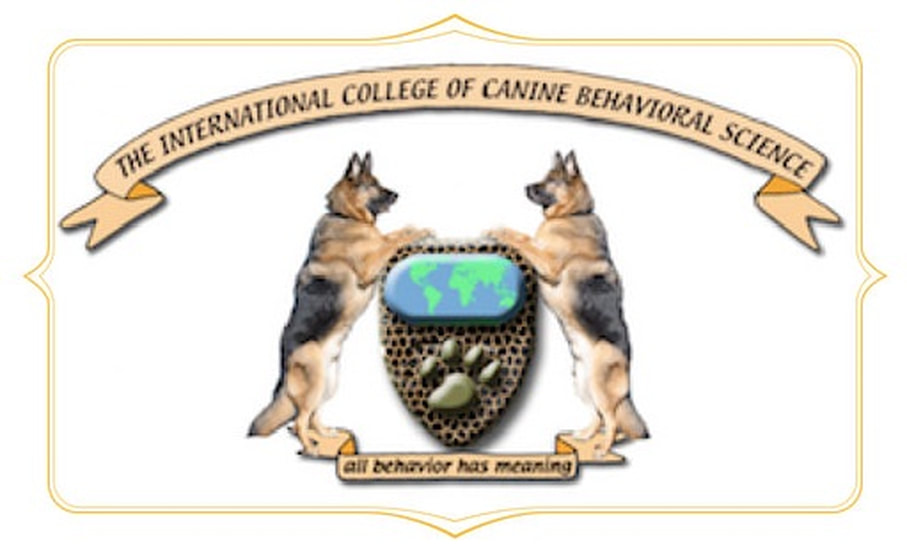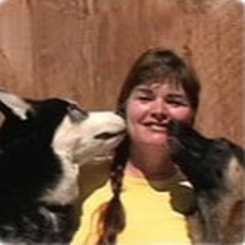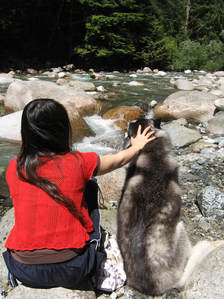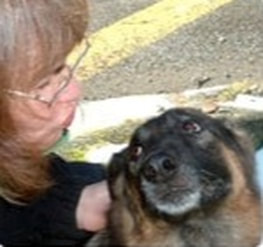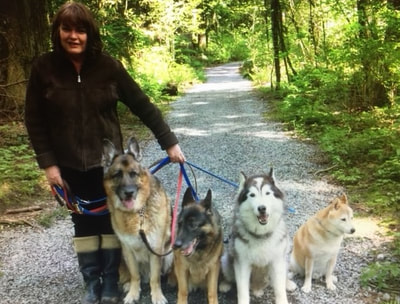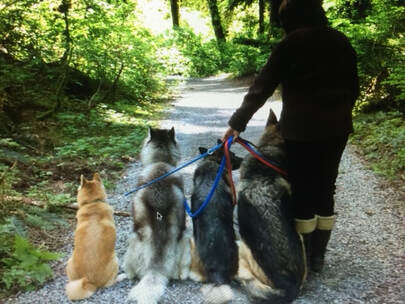COLLEGE OF CANINE BEHAVIORAL SCIENCE
SUBJECTS
Taught by Prewitt Canine Training Academy @ the College location
in Ucluelet, Vancouver Island, BC Canada
in Ucluelet, Vancouver Island, BC Canada
FIRST SEMESTER :
Subject Content:
Social Psychology 101
History of the dog and how dogs evolved. Pack Theory and how it applies to canine socialization. Controlled socialization = how to safely meet & greet other dogs and people. Early developmental stages and their significance on later behaviour. Problem identification & solution planning for socially unacceptable behaviours including: jumping up, pulling on the leash, toilet training, unnecessary barking, destructive chewing, escaping, digging, mouthing, nipping, biting, and inappropriate aggression.
Dog Psychology 102
Understanding how dogs think & therefor behave. Pack Theory - what is it? Understanding breed & breed blend characteristics. Interpreting canine body language. Profile assessment: how to identify and understand the many different profiles/personalities of dogs as influenced by genetics (heredity) & environment (life experience).
Training Psychology 103
Understanding how dogs learn. Applying Pack Theory to training. Classical & operant conditioning. Principles of dog training. How to objectively observe & assess the individual dog. Learning different approaches to individual dogs & how to proceed with the most effective approach to training each individual dog.
Dog Obedience 104
How to induce 100% co-operation from any dog by using intelligence & psychology WITHOUT food bribery, NO punishment, NO shouting, NO hitting, NO scruffing, NO halties, NO pain. Handling dogs using a play + praise reward system on a six foot leash with hand signals and verbal commands while using a comfortable neck collar or body harness. Six commands of an obedience routine as used worldwide in competition obedience trials where bait, food bribery and gimmicks are not allowed. How Pack Theory is used in the obedience routine. How to test handler & dog for a 100% conditioned response with distraction, before progressing to the next level.
Applying The Prewitt Program 105
Health-care/Nutrition/Exercise/ and their link to behaviour. Business management; class structure; designing individual programs for the individual dog and their families’ needs. ________________________________________________________________
SECOND SEMESTER :
Subjects:
Social Psychology 201
Covering the same topics as Social Psychology 101 on a deeper level plus: Puppy, adult and geriatric developmental stages and their effect on behaviour. Cause/prevention & management/rehabilitation of behavioural problems. Canine aggression: management & rehabilitation with emphasis on safety precautions.
Dog Psychology 202
Covering the same topics as dog psychology 102 on a deeper level plus:
Understanding Canine Drives & instincts and their effect on behaviour. Puppy, adult, and geriatric temperament testing for profile assessments.
Training Psychology 203
Covering the same topics as Training Psychology 103 on a deeper level plus: Understanding how to utilize humane strategies for eliminating unwanted behaviours. Psychological & physiological effects (long & short term) of other methods and equipment being used to train dogs. This education will enable the student to: 1.) understand the pros & cons of other methods & equipment being used by other people in the field today & throughout history. 2.) enable the handler to rectify any adverse effects on the dog that may have been caused by use of these other methods and equipment.
Dog Obedience 204
Covering the same topics as Dog Obedience 104 on a deeper level plus: A variety of play games used to reward the dog’s performance. Article identification & word association games using the obedience routine. Off-leash control including agility exercises and searching games. How to test handler & dog for a 100% conditioned response with distraction, before progressing to the next level.
Applying The Prewitt Program 205
Covering the same topics as The Prewitt Program 105 on a deeper level plus: Introduction to canine anatomy & physiology. “Food refusal training” to prevent accidental or intentional poisoning . Introduction to canine first aid. _______________________________________________________________
Subject Content:
Social Psychology 101
History of the dog and how dogs evolved. Pack Theory and how it applies to canine socialization. Controlled socialization = how to safely meet & greet other dogs and people. Early developmental stages and their significance on later behaviour. Problem identification & solution planning for socially unacceptable behaviours including: jumping up, pulling on the leash, toilet training, unnecessary barking, destructive chewing, escaping, digging, mouthing, nipping, biting, and inappropriate aggression.
Dog Psychology 102
Understanding how dogs think & therefor behave. Pack Theory - what is it? Understanding breed & breed blend characteristics. Interpreting canine body language. Profile assessment: how to identify and understand the many different profiles/personalities of dogs as influenced by genetics (heredity) & environment (life experience).
Training Psychology 103
Understanding how dogs learn. Applying Pack Theory to training. Classical & operant conditioning. Principles of dog training. How to objectively observe & assess the individual dog. Learning different approaches to individual dogs & how to proceed with the most effective approach to training each individual dog.
Dog Obedience 104
How to induce 100% co-operation from any dog by using intelligence & psychology WITHOUT food bribery, NO punishment, NO shouting, NO hitting, NO scruffing, NO halties, NO pain. Handling dogs using a play + praise reward system on a six foot leash with hand signals and verbal commands while using a comfortable neck collar or body harness. Six commands of an obedience routine as used worldwide in competition obedience trials where bait, food bribery and gimmicks are not allowed. How Pack Theory is used in the obedience routine. How to test handler & dog for a 100% conditioned response with distraction, before progressing to the next level.
Applying The Prewitt Program 105
Health-care/Nutrition/Exercise/ and their link to behaviour. Business management; class structure; designing individual programs for the individual dog and their families’ needs. ________________________________________________________________
SECOND SEMESTER :
Subjects:
Social Psychology 201
Covering the same topics as Social Psychology 101 on a deeper level plus: Puppy, adult and geriatric developmental stages and their effect on behaviour. Cause/prevention & management/rehabilitation of behavioural problems. Canine aggression: management & rehabilitation with emphasis on safety precautions.
Dog Psychology 202
Covering the same topics as dog psychology 102 on a deeper level plus:
Understanding Canine Drives & instincts and their effect on behaviour. Puppy, adult, and geriatric temperament testing for profile assessments.
Training Psychology 203
Covering the same topics as Training Psychology 103 on a deeper level plus: Understanding how to utilize humane strategies for eliminating unwanted behaviours. Psychological & physiological effects (long & short term) of other methods and equipment being used to train dogs. This education will enable the student to: 1.) understand the pros & cons of other methods & equipment being used by other people in the field today & throughout history. 2.) enable the handler to rectify any adverse effects on the dog that may have been caused by use of these other methods and equipment.
Dog Obedience 204
Covering the same topics as Dog Obedience 104 on a deeper level plus: A variety of play games used to reward the dog’s performance. Article identification & word association games using the obedience routine. Off-leash control including agility exercises and searching games. How to test handler & dog for a 100% conditioned response with distraction, before progressing to the next level.
Applying The Prewitt Program 205
Covering the same topics as The Prewitt Program 105 on a deeper level plus: Introduction to canine anatomy & physiology. “Food refusal training” to prevent accidental or intentional poisoning . Introduction to canine first aid. _______________________________________________________________
|
TRACKING:
Science of Tracking 301 Training to Track 302 Handling to Seek & Find 303 |
PROTECTION:
Science of Protection 401 Aggression Rehabilitation 402 Handling the Protection Trained Dog 403 |
_____________________________________________________________
MASTER CLASS:
MASTER TRAINER DESIGNATION REQUIREMENTS:
Prerequisite:
First and second semesters + tracking and protection and six accumulated years experience
Individual programs will be designed for successful candidates
For more information please phone:
250-726-2539
__________________________________________________________
MASTER CLASS:
MASTER TRAINER DESIGNATION REQUIREMENTS:
Prerequisite:
First and second semesters + tracking and protection and six accumulated years experience
Individual programs will be designed for successful candidates
For more information please phone:
250-726-2539
__________________________________________________________
METHODOLOGY: Students will receive an education in the form of theory & practical application of a PLAY + PRAISE reward system without food food bribery, restrictive equipment or gimmicks therefor inducing the dog to become handler attentive rather than food focused or gimmick responsive. This PLAY + PRAISE reward system has been used around the world & throughout history to obtain reliable results from working dogs, disability assistance dogs, and family pets. Spontaneous co-operation from these dogs is achieved by teaching the handler how to build a loving/trusting bond & healthy working relationship with the dog without fear or anxiety producing techniques or devices.
For example: the master did not train his herding dog to perform his work by running out into the field to give the dog a cookie every time the dog completed the desired task, nor did the master have the dog attached to the leash. The working dog will happily and reliably perform the task for the master who understands how to use the dog’s natural instincts and innate desire to please the leader of the pack. A truly successful leader will induce canine co-operation by using intelligence & psychology rather than brute force or gimmicks.
For example: the master did not train his herding dog to perform his work by running out into the field to give the dog a cookie every time the dog completed the desired task, nor did the master have the dog attached to the leash. The working dog will happily and reliably perform the task for the master who understands how to use the dog’s natural instincts and innate desire to please the leader of the pack. A truly successful leader will induce canine co-operation by using intelligence & psychology rather than brute force or gimmicks.
“Canine co-operation is not a function of intelligence of the already clever dog, but rather a function of intelligence of the handler!”
e-mail:
[email protected]
If we don’t get back to you in 24 hours please phone
250-726-2539
e-mail:
[email protected]
If we don’t get back to you in 24 hours please phone
250-726-2539
